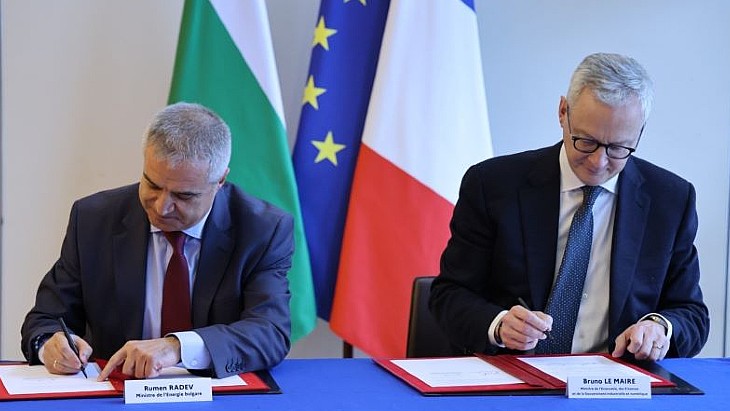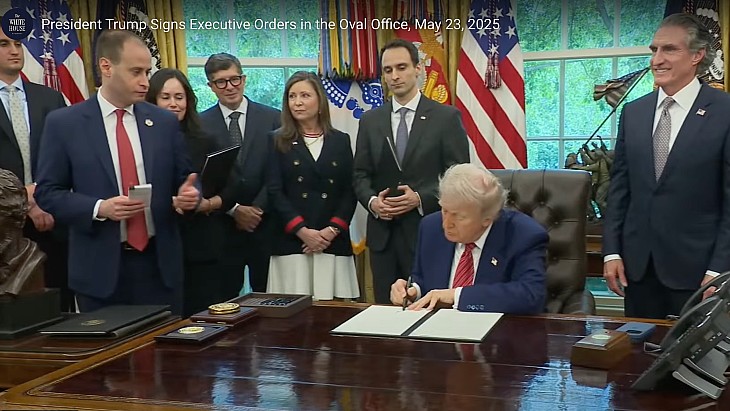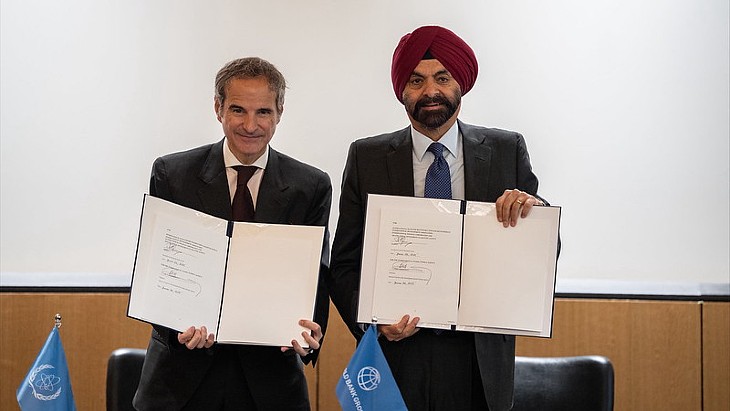France and Bulgaria to strengthen nuclear energy cooperation

The declaration, signed in Paris, will see the two members of the European Nuclear Alliance continuing to cooperate as part of the Alliance and its promotion of nuclear energy within the European Union, as well as committing to establish bilateral cooperation in the field of nuclear energy.
According to the French Economy Ministry: "This cooperation will concern, among other things, the nuclear construction programmes envisaged in the two countries, the analysis of new technologies such as small modular reactors or advanced technology reactors, the development of a European supply chain, the fuel cycle, nuclear power and the strengthening of nuclear training courses within the two countries."
The declaration recognises the "essential role" nuclear energy will play in both countries' "efforts to strengthen energy security and sovereignty, reducing carbon emissions to achieve carbon neutrality by 2050, provide affordable energy and support industrial and regional development".
It also "promotes the participation of companies from both countries in new projects, management of aging and long-term operation, dismantling and decommissioning of nuclear installations and in particular nuclear reactors" as well as analysing, with a "long-term vision, the possibilities of cooperation on new construction projects in Bulgaria based on European Gen III+ technologies including large reactors and small modular reactors".
The statement says it is not designed to be legally binding on either side but seeks to strengthen cooperation with regular exchanges, and leaves the door open for extending cooperation by mutual agreement.
Bulgaria's Radev said: "When we share know-how on technology, education and training programmes between Bulgaria and France in the nuclear field, this means that we also share an understanding of the future, and also of our security and competitiveness, a green future based on real baseload, on low carbon energy that is secure, reliable and gives us the chance to be sustainable, competitive and to develop our economies in the best possible way."
France's Le Maire said: "We want to extend our cooperation with Bulgaria to other areas with regard to nuclear energy. This includes cooperation in the supply chain, skills development. I set out the idea of a project of common interest in the nuclear field because you know that we have projects of common interest on many topics, including raw materials, hydrogen. It is worth having projects of common interest in the field of nuclear energy as well."
Bulgaria currently has two units operating. Kozloduy units 1-4 were VVER-440 models which the European Commission had classified as non-upgradeable and Bulgaria agreed to close them during negotiations to join the European Union in 2007. Units 5 and 6 feature VVER-1000 reactors that were connected to the grid in 1987 and 1991, respectively. Both units have been through refurbishment and life extension programmes to enable extension of operation from 30 to 60 years. The country is currently planning two new Westinghouse AP1000 units at Kozloduy, and has said further new units will be needed by 2050. There have also been discussions over the feasibility of small modular reactors as the country.
France derives about 70% of its electricity from nuclear energy and has been active in developing nuclear technology and advocating for it within the European Union and has an ambitious expansion programme for six EPR-2 PWRs at three sites in France over the coming years with the aim of a construction start before May 2027.









..._58412.jpg)

